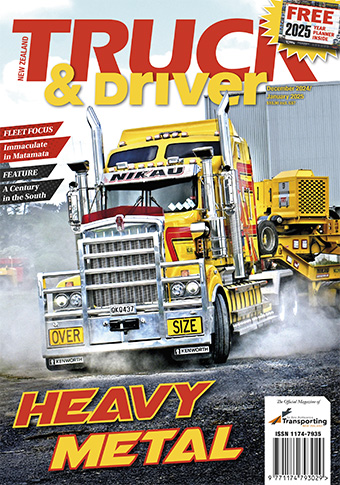
Transporting New Zealand calls for additional measures to support the Low Emissions Heavy Vehicle Fund
Posted: 26-Sep-2024 |
National road freight association Ia Ara Aotearoa Transporting New Zealand has welcomed the launch of the Low Emissions Heavy Vehicle Fund (the LEHVF) but says additional policy changes and investment are required to support freight decarbonisation.
The fund, administered by the Energy Efficiency & Conservation Authority (EECA) can contribute up to 25 per cent of the cost of new zero and low-emissions heavy vehicles. The LEHVF can also contribute up to 25 per cent of the cost to convert existing higher emitting heavy vehicles to be powered by low-emissions technology – including hydrogen-diesel dual fuel engines. EECA has estimated the LEHVF could prevent 366,622 tonnes of carbon dioxide equivalent emissions, replacing 500 diesel-only vehicles by 2028.
Dom Kalasih says that the 27-million-dollar fund will help Transporting New Zealand’s members get zero and low carbon trucks on the road, reducing transport emissions. “The road freight sector is committed to decarbonisation, including adopting low and zero emission vehicles. However, the high purchase cost and limited range and freight capacity of many available models is a big barrier to uptake. In a low margin industry like ours, practical support from the Government is essential.”
“Battery electric trucks cost between 2-3 times more than internal combustion equivalents, with limited range and loads. Freight customers are understandably price sensitive, particularly in the current economic climate, and this can make low and zero emission freight services a tough sell.”
Transporting New Zealand is also calling for the Government to prioritise three actions to support decarbonisation in the road freight sector: introduce accelerated depreciation for low and zero emission vehicles (including higher productivity motor vehicles); reform the vehicle dimension and mass rules to allow more battery weight on front axles; and strengthen roads surfaces and bridges to allow heavier, more efficient, electric vehicles and high productivity motor vehicles to access more of the roading Network.
“Co-funding vehicle purchases is an important piece of the puzzle, but getting our regulatory settings and roading network ready for more efficient vehicles is also essential to increasing uptake and driving down emissions.”
Transporting New Zealand is currently working with several other transport associations and NZ Transport Agency Waka Kotahi to propose practical amendments to the Land Transport Rules that will improve freight efficiency.




 + EQUIPMENT GUIDE - FREE
+ EQUIPMENT GUIDE - FREE
